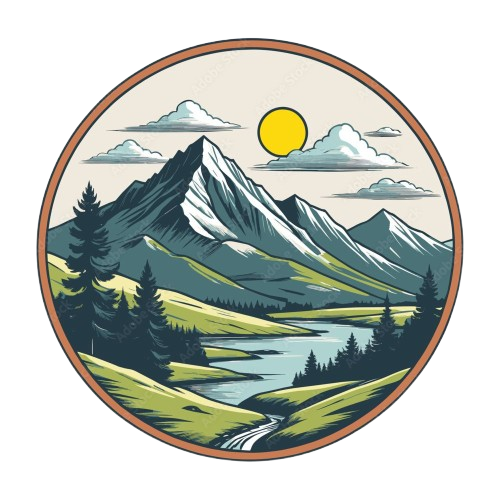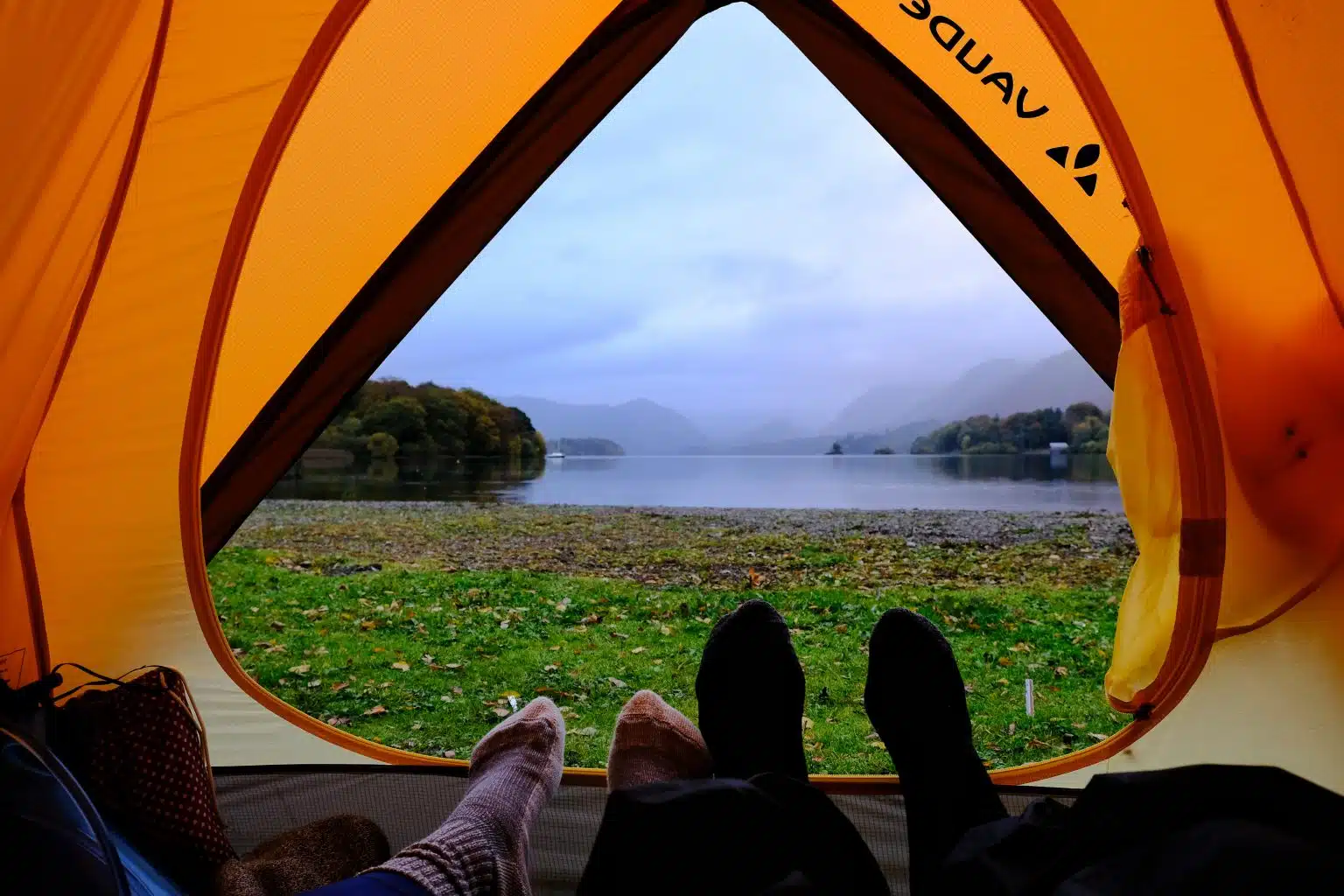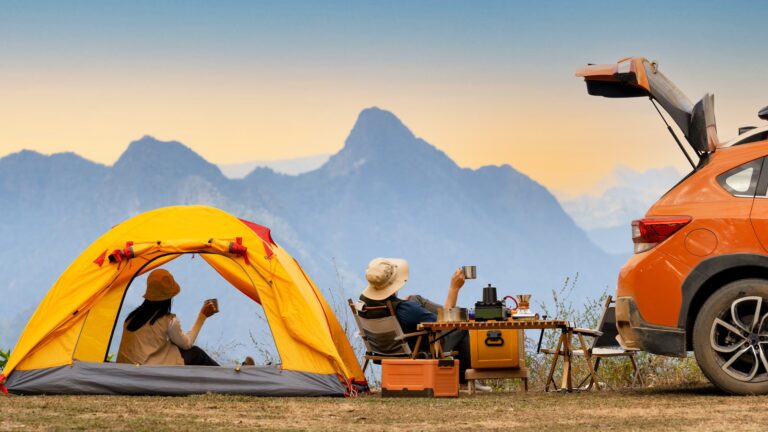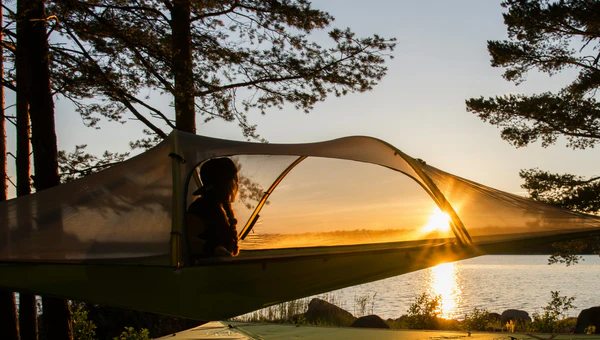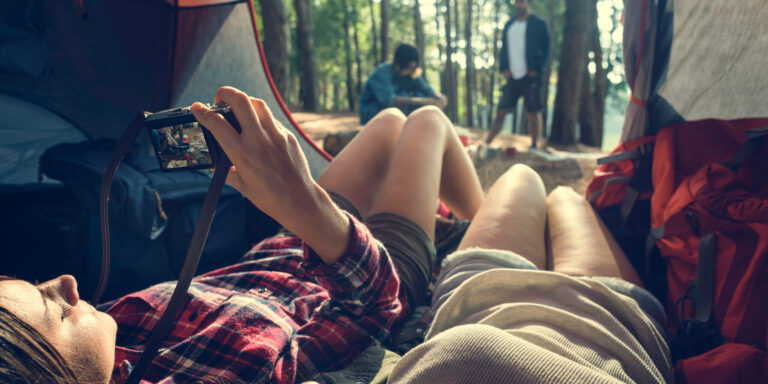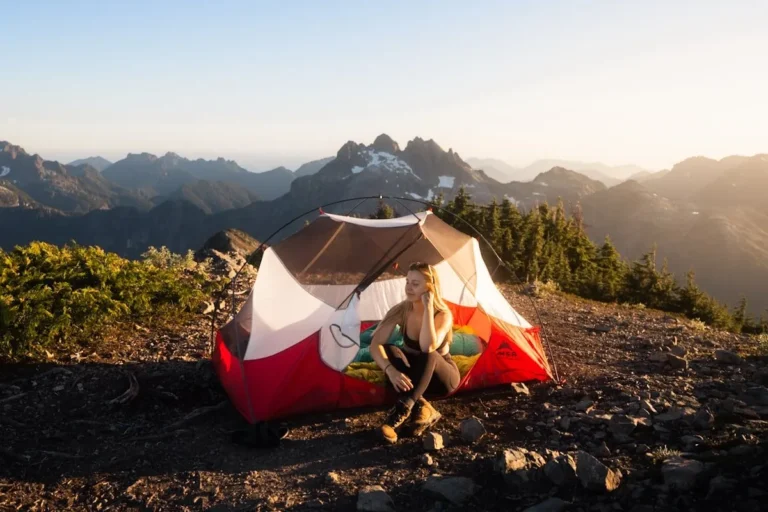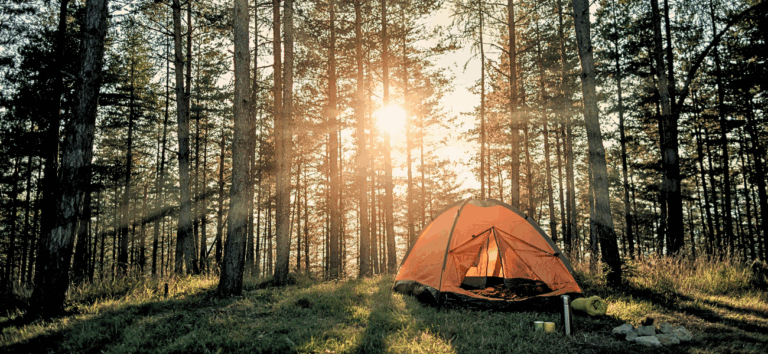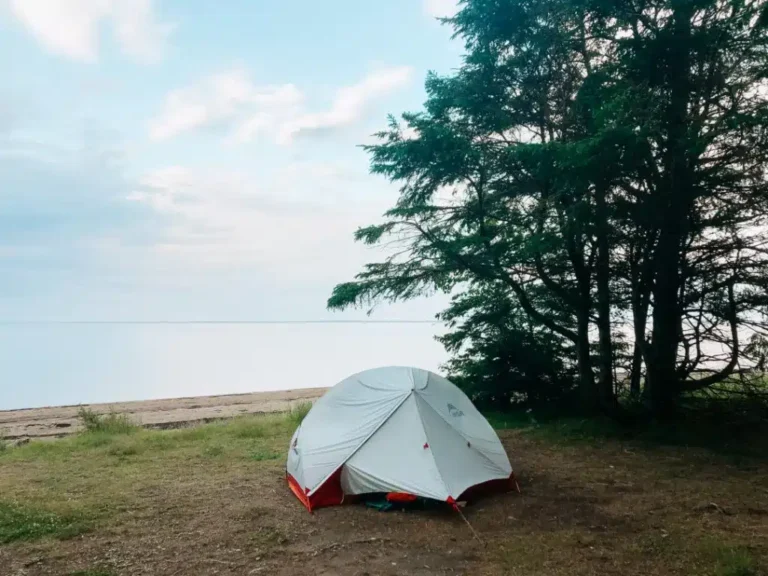Camping 101: The Comprehensive Guide to Camping for Novices and First-Timers
Camping is the ideal starting point if you’ve always wanted to get away from the bustle, breathe clean air, and get back in touch with nature. However, camping may seem daunting if you have never set up a tent or cooked over a fire before. You can confidently embark on your first outdoor adventure with the help of this guide.
🏕️ Why Go Camping?
Camping isn’t just about sleeping in the woods — it’s about slowing down, unplugging, and recharging in the most natural way possible. Whether you’re a solo traveler, couple, family, or group of friends, camping offers:
- A break from screens and stress
- Quality time with loved ones
- Affordable travel
- A deeper connection with nature
- New skills and self-reliance
🌲 Types of Camping
Before you grab your gear, decide what type of camping fits you best:
1. Tent Camping
The classic camping experience. Ideal for state parks, national parks, and private campgrounds.
2. Car Camping
Camp close to your vehicle, making it easy to bring supplies without hiking them in.
3. Backpacking
Great for adventurous souls! Hike into remote areas with lightweight gear and sleep in the wild.
4. RV or Camper Van Camping
Perfect if you want the outdoors with added comfort. Think beds, kitchens, and sometimes bathrooms.
5. Glamping
“Glamorous camping” with pre-set tents, cabins, or domes, often with real beds and amenities.
🧳 What to Pack: Beginner Camping Checklist
Here’s a simplified list of essentials to make sure you’re ready for your first trip:
Shelter & Sleep
- Tent (with stakes and rainfly)
- Sleeping bag (rated for the weather)
- Sleeping pad or air mattress
- Pillow
Cooking & Food
- Portable stove or grill
- Fuel for stove
- Cookware (pot, pan, utensils)
- Cooler & ice
- Plates, bowls, cups
- Food & snacks
- Water bottles or hydration system
- Biodegradable soap & sponge
- Trash bags
Clothing
- Weather-appropriate layers (warm nights, cool mornings)
- Extra socks & underwear
- Waterproof jacket
- Comfortable hiking shoes
- Hat & sunglasses
- Pajamas or sleepwear
Personal Items
- First aid kit
- Sunscreen & insect repellent
- Towel
- Toiletries (toothbrush, wipes, etc.)
- Flashlight or headlamp (plus extra batteries)
- Camping chair or mat
- Toilet paper (if none at campsite)
Optional but Nice to Have
- Hammock
- Camp table
- Books or journal
- Cards or games
- Bluetooth speaker (low volume, please!)
- Camera or binoculars
🗺️ Choosing a Campsite
When selecting your first campsite, consider the following:
- Proximity to home: Choose a site close by in case you need to leave early.
- Amenities: Look for campsites with restrooms, potable water, and marked spots.
- Safety: Avoid areas prone to flooding or wildlife problems.
- Permit Requirements: Some parks require advance booking or permits — plan ahead.
Great places to start include national parks, state parks, forest reserves, or private campgrounds.
🔥 Setting Up Camp
Arrive with daylight to make setup easier. Here’s how to settle in:
- Pick a flat, dry spot for your tent.
- Lay a tarp or groundsheet before pitching the tent.
- Assemble your tent (follow instructions or look up a video in advance).
- Set up cooking and eating areas a little distance from your tent.
- Store food properly (cooler, car, or bear box depending on location).
🍳 Camp Cooking Basics
You don’t need to be a master chef — just keep it simple and safe:
- Try meals like chili, grilled sandwiches, sausages, foil packets, or pasta.
- Bring easy breakfast options like oatmeal, granola, and fruit.
- Use a cooler to keep perishables fresh.
- Clean up all food and dishes promptly to avoid attracting animals.
Don’t forget s’mores for dessert!
✅ Camping Etiquette & Safety Tips
Respecting nature and fellow campers is part of the camping code:
- Leave No Trace: Pack out all trash. Leave your spot cleaner than you found it.
- Quiet Hours: Most campsites enforce quiet time after dark.
- Campfire Safety:
- Only use designated fire rings.
- Keep fires small.
- Never leave fires unattended.
- Fully extinguish before bed or leaving.
- Wildlife Safety: Never feed animals. Store food in sealed containers.
- Weather Awareness: Always check the forecast. Avoid setting up in flood zones.
🧠 Pro Tips for First-Time Campers
- Practice at home: Set up your tent and test your gear before the trip.
- Plan simple meals: Prep ingredients at home to save time.
- Start with a one-night trip: Get a feel for things before going big.
- Stay flexible: Things might go wrong — stay patient and adaptable.
- Check campground rules: Some prohibit alcohol, pets, or specific gear.
🌌 What to Do While Camping
Embrace the slower pace and take time to enjoy:
- Hiking nearby trails
- Stargazing
- Wildlife watching
- Fishing or swimming
- Reading or journaling
- Photography
- Playing games or telling stories around the fire
🧭 Final Thoughts: Your First Step Into the Wild
Camping is more than just an outdoor activity — it’s an opportunity to reconnect with what matters most. With the right mindset and preparation, your first camping trip can be fun, memorable, and even transformative.
So gather your gear, invite a friend or go solo, and head out into nature. The wild is calling — and you’re ready to answer.
